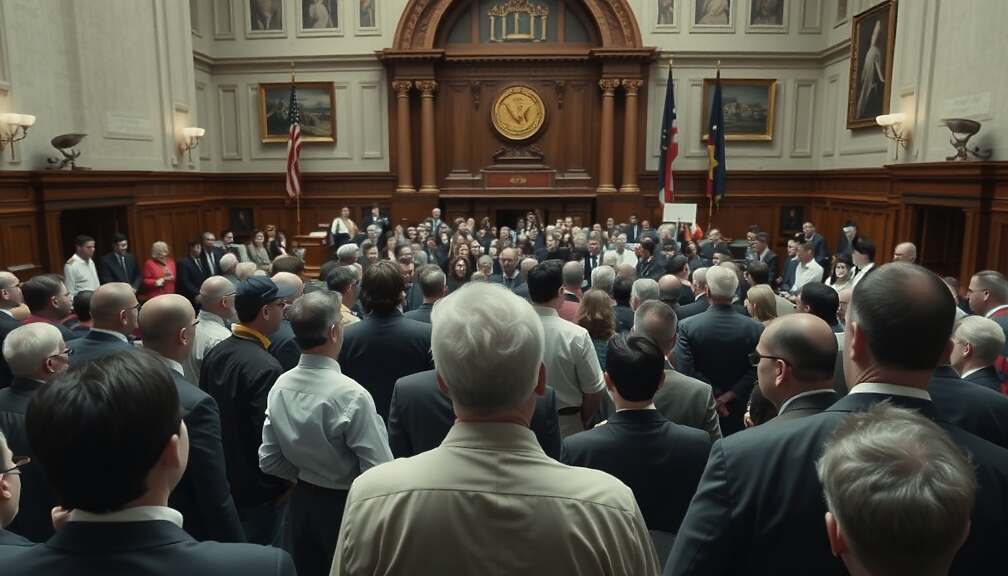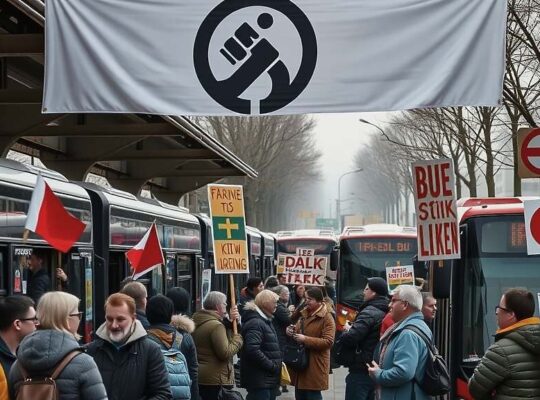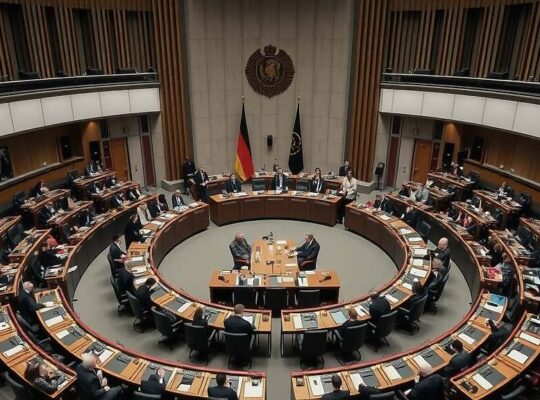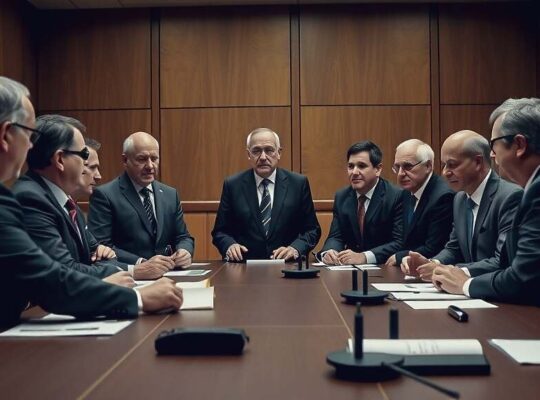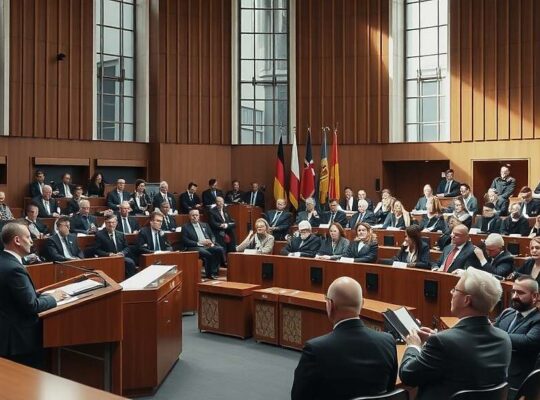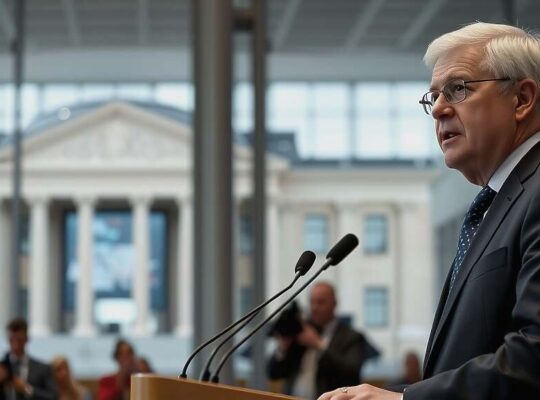A session of the German Bundestag was disrupted Wednesday afternoon by a pro-Palestinian protest, escalating a growing trend of politically motivated disruptions within the legislative body. During a speech delivered by Foreign Minister Johann Wadephul of the Christian Democratic Union (CDU), a visitor in the visitor’s gallery interjected with shouts of “There is no ceasefire” while displaying a Palestinian flag.
Bundestag Vice President Omid Nouripour of the Green Party, presiding over the session, swiftly ordered the individual removed from the gallery. Addressing the chamber via microphone, Nouripour emphasized a strict prohibition against political pronouncements from the visitor’s area, stating unequivocally that the session’s debate belonged to the elected representatives, not the gallery attendees. He stressed that the disruption was unacceptable regardless of the content of the expressed opinion.
This latest incident highlights a concerning pattern of politically charged interventions within the Bundestag. Similar disruptions occurred in September, when four members of the Left party were temporarily excluded from the session for raising Palestinian flags during an ongoing debate. The repeated incidents raise questions about the effectiveness of security measures and the balance between freedom of expression and maintaining order within the parliamentary process.
Analysts are increasingly observing a heightened level of political activism, particularly surrounding the ongoing conflict in the Middle East, which is manifesting in various forms of protest within German institutions. While the Bundestag has acknowledged the right to peaceful demonstration, the repeated breaches of parliamentary decorum are prompting a review of procedures and a debate regarding the limits of acceptable behavior within the democratic sphere. The incidents also risk further polarizing the political climate and potentially impacting the ability of elected officials to effectively conduct parliamentary business.


